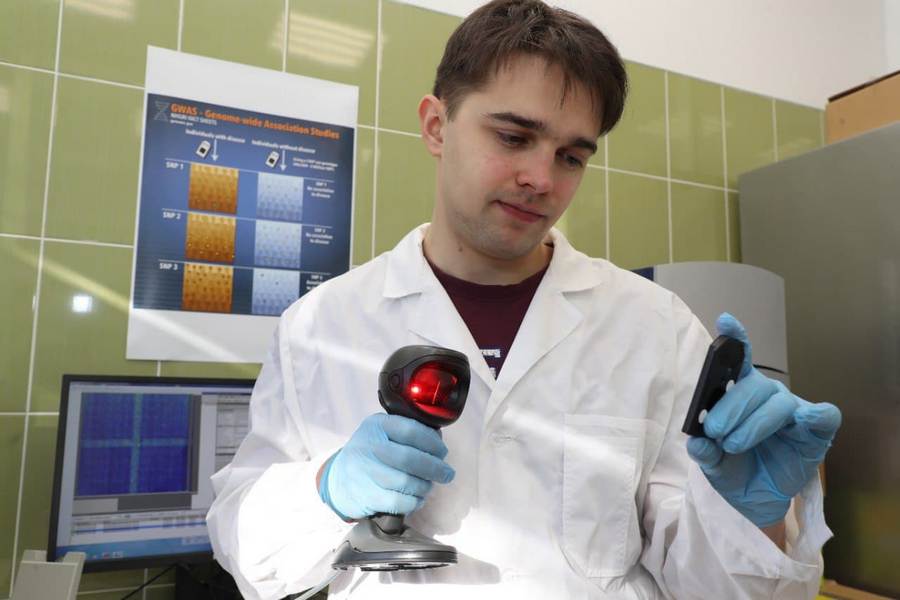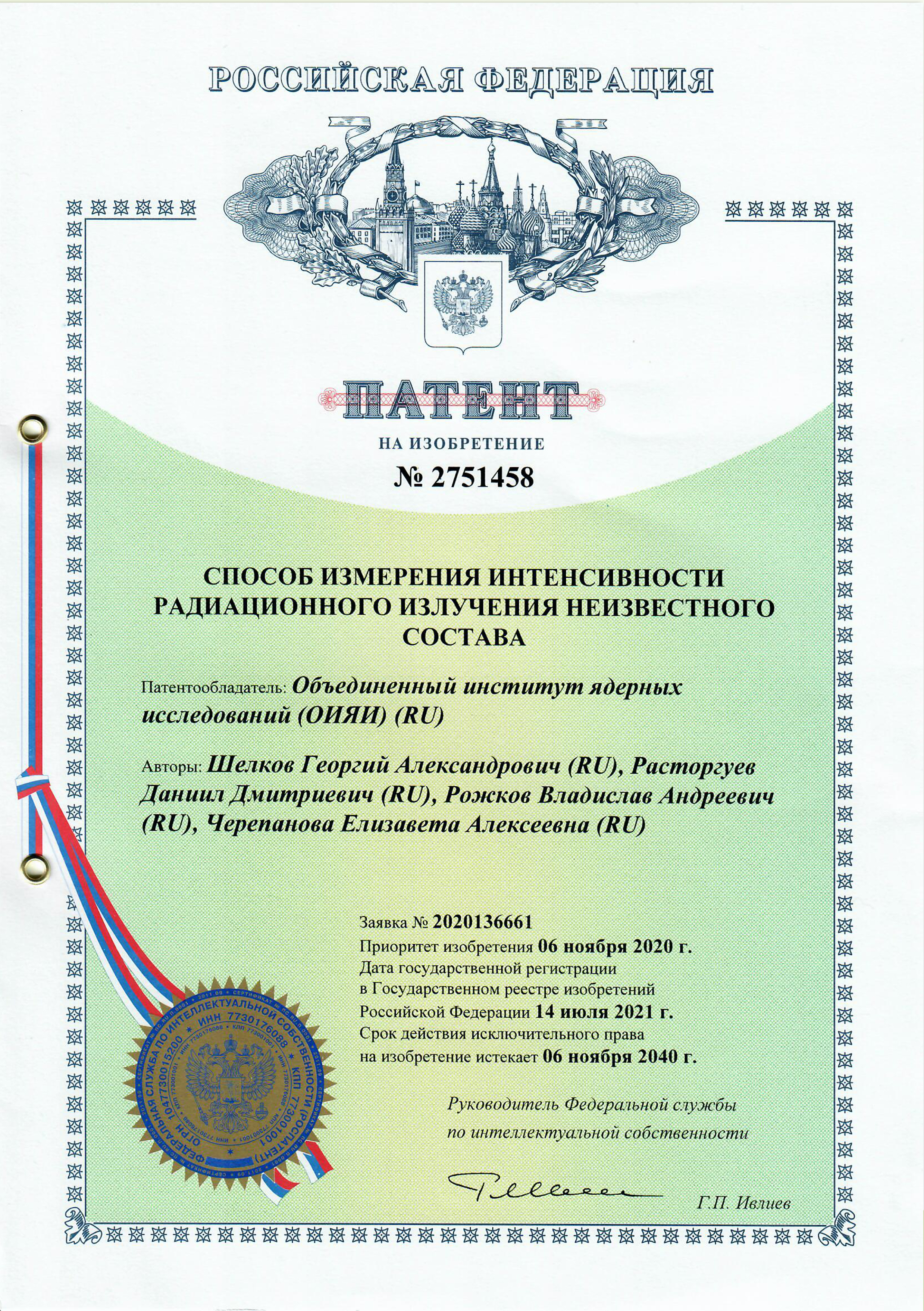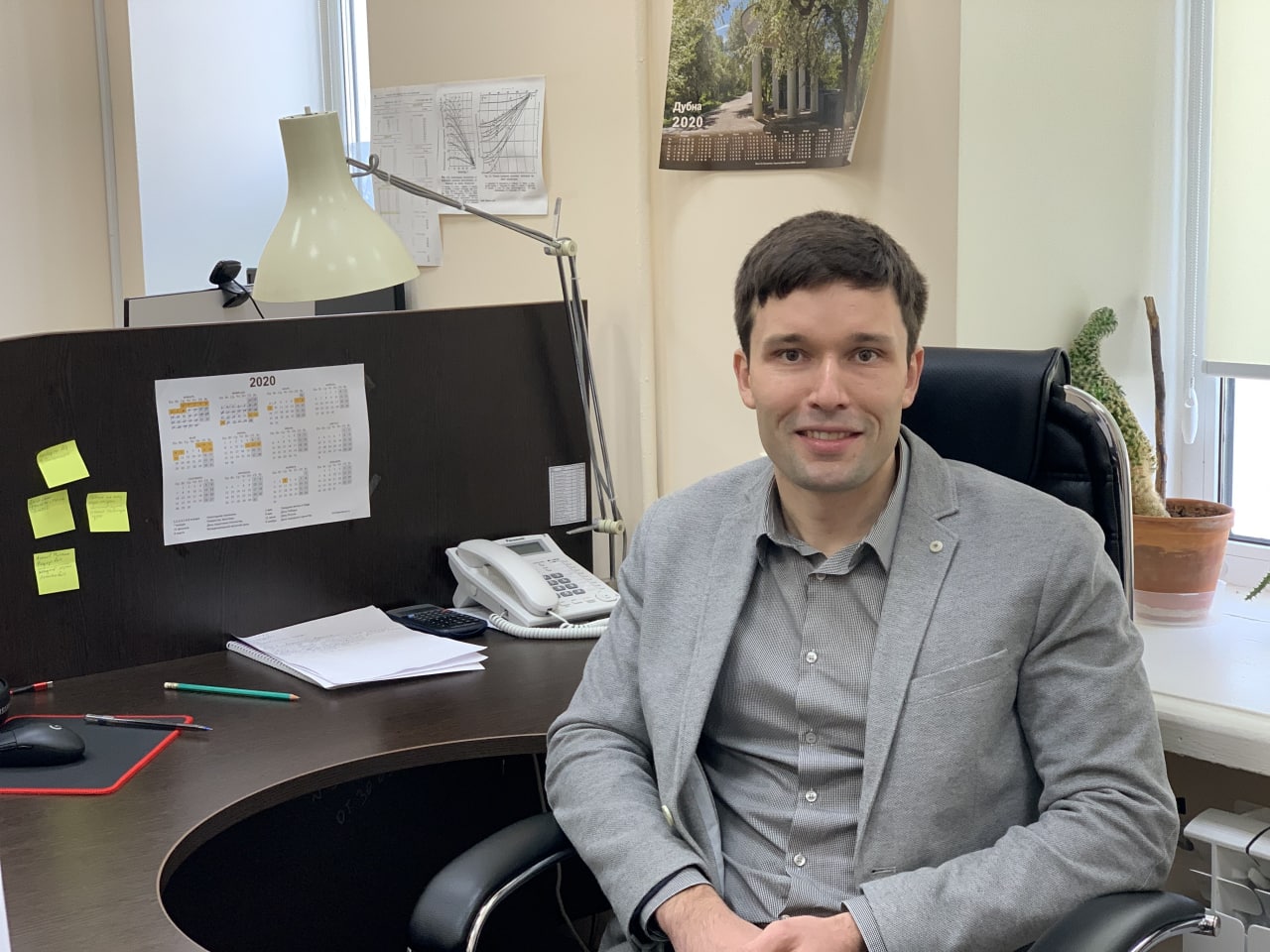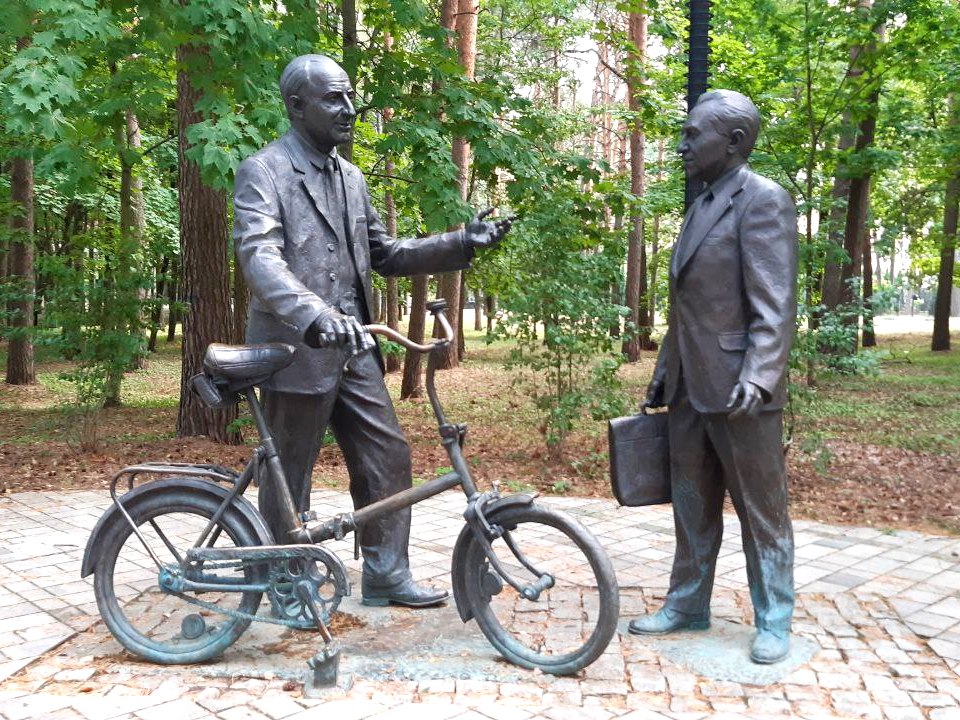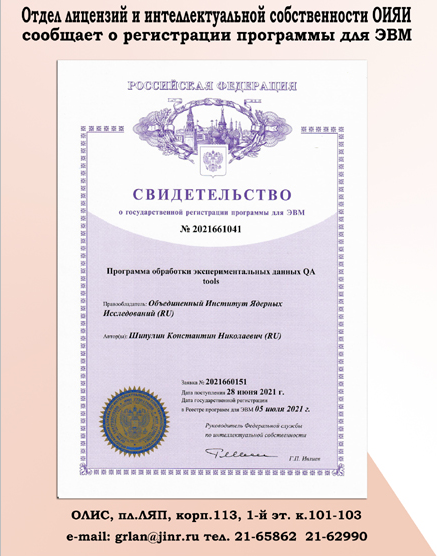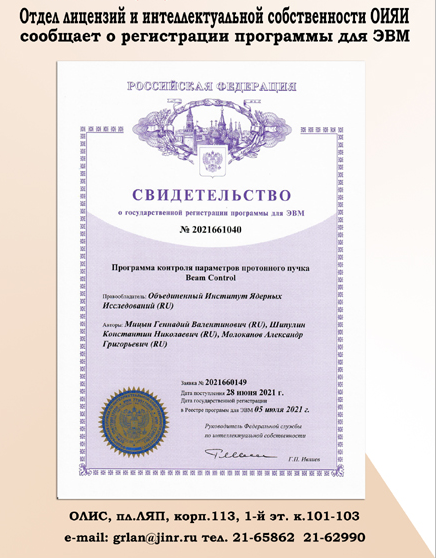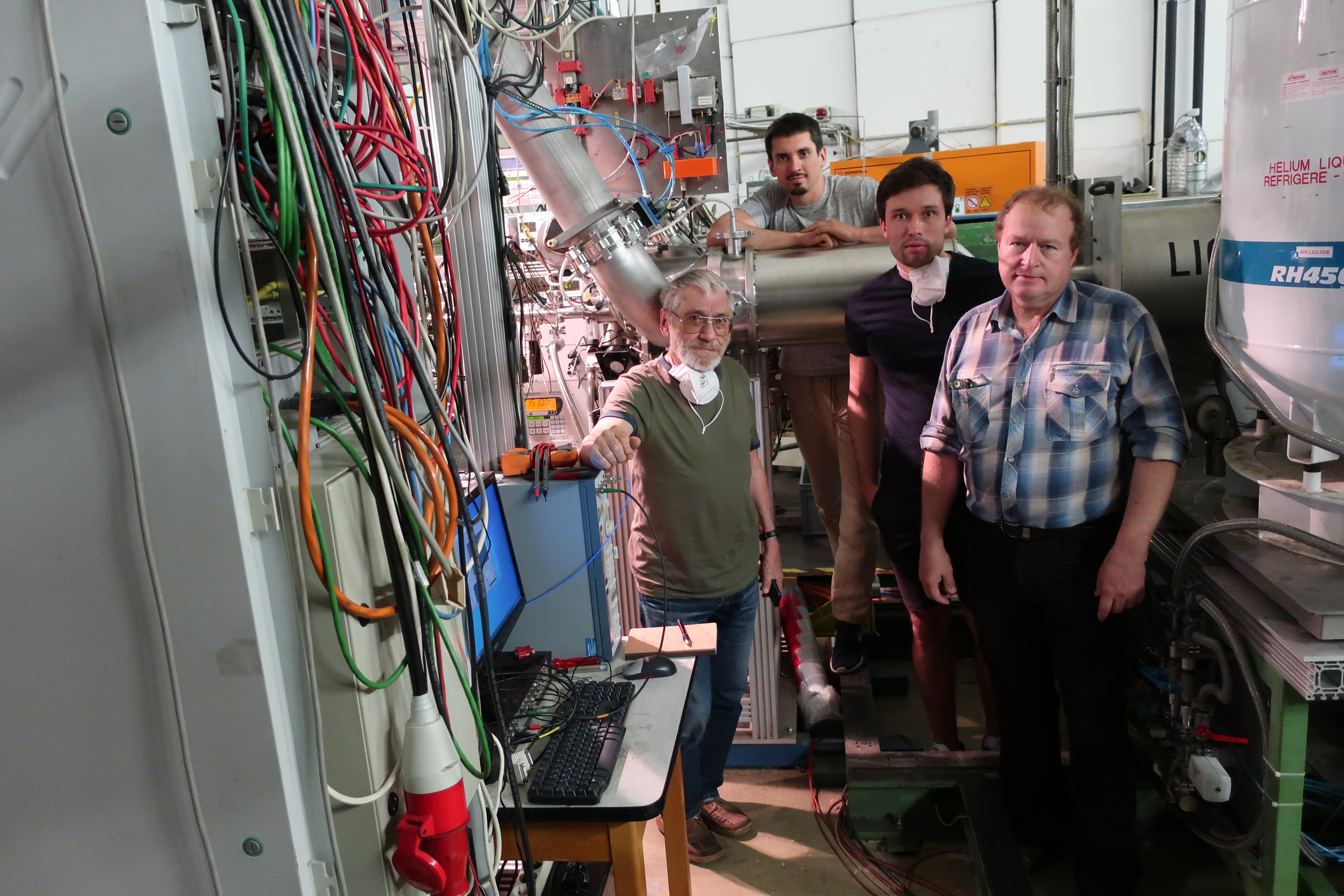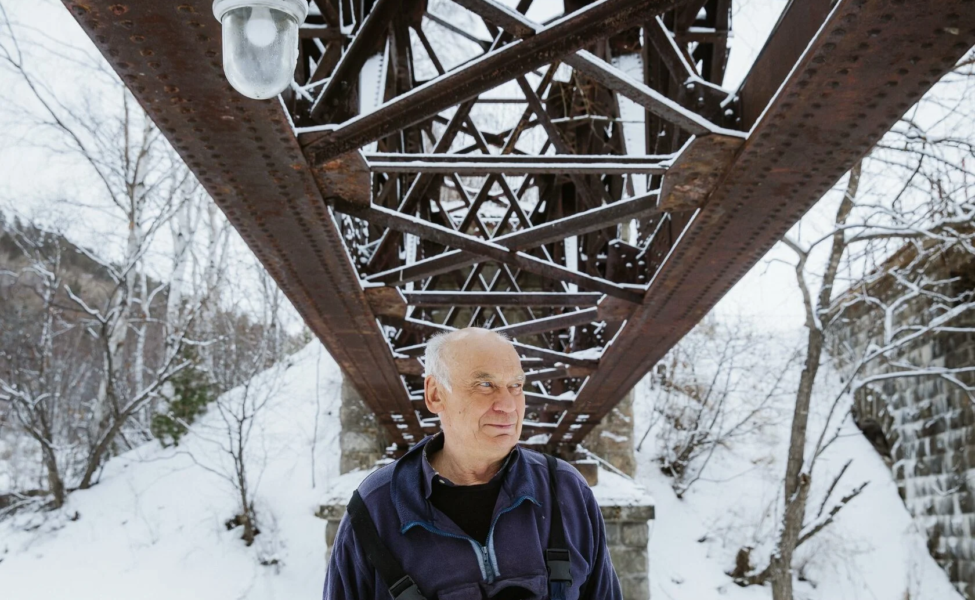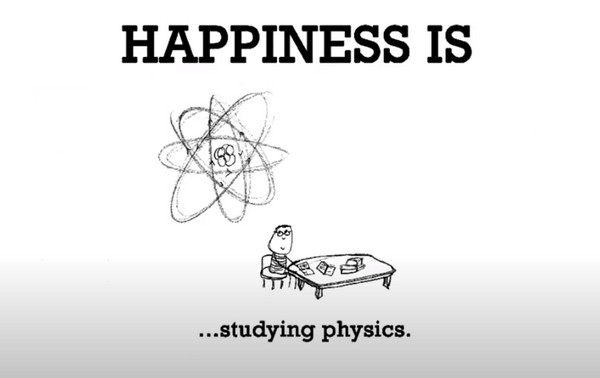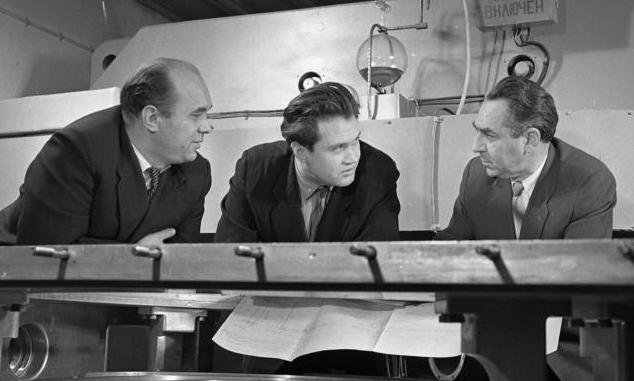News
11.08.2021
For the first time in Russia, biological investigations into the effect of a low radiation background on complex model organisms have been carried out under the unique conditions of the low-background laboratory of the Baksan Neutrino Observatory (INR, RAS). The model was the fruit fly Drosophila melanogaster, a classic object for genetic research. The experiment showed that the low radiation background did not produce any effect on this model organism.
07.08.2021
The JINR Department of Licenses and Intellectual Property announces that on 14 July 2021, the Joint Institute for Nuclear Research received a patent for the invention “Method for measuring the intensity of radiation of unidentified composition”. The authors are Georgy Alexandrovich Chelkov, Daniil Dmitrievich Rastorguev, Vladislav Andreevich Rozhkov and Elizaveta Alekseevna Cherepanova.
07.08.2021
The Russian Science Foundation (RSF) has announced the winners of the 2021 Grant Competition “Initiative research performed by young scientists” of the Presidential Programme of RSF research projects. The Competition is aimed at supporting early-career scientists under the age of 33 who have defended their candidate dissertations.
One of the winners is a researcher of the DLNP Sector of Low Temperatures, Candidate of Technical Sciences, Anton Dolzhikov, with his project “Study of heat exchange in a He-3/He-4 dilution cryostat used for reaching ultra-low temperatures (below 30 mK): experiments, development of the calculated model and optimization of configuration”.
06.08.2021
Bruno Maksimovich Pontecorvo was an avid cyclist and knew how to ride a bike both with no hands and sitting hind-foremost. It is how he was pictured on the caricature by Mikhail Bilenky, the son of a close friend of Bruno Pontecorvo, Samoil Mihelevich Bilenky. This friendly caricature, as well as bronze statues near the Culture Centre “Mir”, depicts the academician with a “Kama” bicycle. And in the photograph from the archive of the Museum-Study of the scientist, Bruno Maksimovich is standing near the bicycle which resembles the “Lastochka” model.
02.08.2021
Dear colleagues,A new position has been opened:
Position for master's students, PhD students and postdocs in the DUNE project
All job opportunities are available on our website in the About us / Careers section.
28.07.2021
The JINR Department of Licenses and Intellectual Property announces that on 28 June 2021 the Joint Institute for Nuclear Research got a Certificate of State Registration of the software program “Experimental data processing program QA tools” authored by Konstantin Nikolaevich Shipulin.
28.07.2021
The JINR Department of Licenses and Intellectual Property announces that on 28 June 2021 the Joint Institute for Nuclear Research got a Certificate of State Registration of the software program “Program of proton beam parameter control Beam Control” authored by Gennady Valentinovich Mitsyn, Konstantin Nikolaevich Shipulin and Alexander Grigorevich Molokanov.
28.07.2021
Recently, the beam session at the ELSA accelerator of the University of Bonn has been completed. Scientists from the Sector of Low Temperatures (SLT) of the Dzhelepov Laboratory of Nuclear Problems were actively involved in it. The upgraded Crystal Barrel facility at the ELSA accelerator allows measuring double-polarization observables in reactions of photoproduction of neutral mesons. It is these measurements that are crucial to the search for “missing” resonances when studying the processes of photoproduction of mesons and hyperons on protons.
26.07.2021
Today, on 26 July 2021, the Giuseppe and Vanna Cocconi Prize has been awarded at the conference of the European Physical Society on high-energy physics (EPS-HEP 2021).
The international Borexino collaboration received the prestigious Giuseppe and Vanna Cocconi Prize of the European Physical Society in astrophysics and cosmology for breakthrough studies of solar neutrinos providing a unique and exhaustive proof of nuclear fusion reactions in the Sun in the pp chain and in the CNO cycle.
23.07.2021
Nikolay Mikhailovich Budnev, the Dean of the Faculty of Physics of Irkutsk State University, stood at the origins of the Baikal Neutrino Telescope. For over 40 years, since 1981, he has been involved in this project.
The latest edition of the “Let’s voice it” podcast (presenters: Nastya Lotareva (BBC) and Vladimir Shvedov (“Takie dela” (Russian for: “That is the way it is”)) was devoted to Nikolay Mikhailovich and the Baikal Neutrino Observatory. The edition was based on the article “Two thousand three hundred eyes of Baikal. How the Universe is studied in the Earth’s deepest lake” by Natalia Sokolnikova, the journalist of the “People from Baikal” journal.
19.07.2021
Last Saturday, the 21st Baikal Summer School on Physics of Elementary Particles and Astrophysics was completed. It was held online from 12 to 17 July. The School was organized by the Dzhelepov Laboratory of Nuclear Problems (JINR) and Irkutsk State University. This year, about 40 listeners were involved, 13 of them were foreign participants from India, Egypt, Ukraine, Armenia, Romania and Brazil. The students attended lectures on particle physics and astrophysical neutrinos with great interest, discussed some topical problems under the guidance of supervisors, took part in problem-solving sessions, and presented their research.
Igor Ivanov, a co-chair of the Organizing Committee, shared his impressions with us,
17.07.2021
Today, on 18 July, it is the centennial birthday of Doctor of Technical Sciences Boris Ivanovich Zamolodchikov who can rightly be considered as one of the founders of our Institute.
He was invited to Dubna in 1948 soon after graduating from the institute. He was immediately employed as chief engineer of the Hydroengineering Laboratory, the future Laboratory of Nuclear Problems at JINR. He constructed, commissioned and operated the first basic lab facility, a synchrocyclotron, for which he together with his colleagues received the State Stalin Prize. In 1958−1962, he headed the work on increasing cyclotron beam intensity, thanks to which the facility became the then best accelerator of this kind.
The DLNP Group of Scientific Communication talked to Alexander Borisovich Zamolodchikov, a physicist, Doctor of Physics and Mathematics, the son of B. I. Zamolodchikov, about the work, family and philosophy of life of his father.


